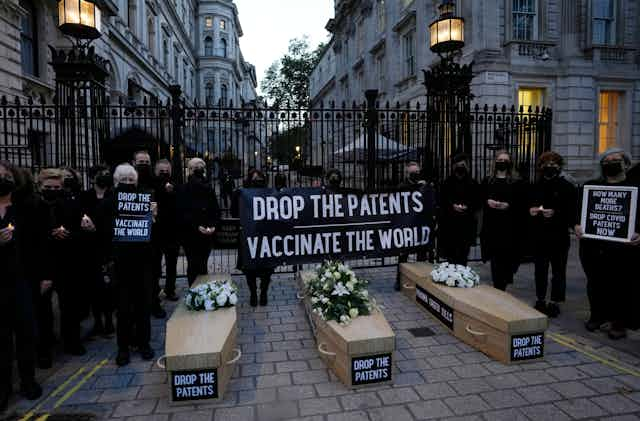In mid-June, the World Trade Organization (WTO) will meet to finish negotiations to waive certain sections of the agreement on Trade Related Intellectual Property Rights (TRIPS). However, it is not the TRIPS waiver originally proposed 18 months ago by member states South Africa and India, which would have allowed countries to produce lower-cost generic vaccines and other COVID-19 medical tools without the risk of legal trade challenges.
The opposition to the waiver from a few WTO member states — home to the pharma companies holding monopoly patent rights over the vaccines — has resulted in “vaccine apartheid” (rich countries buying up all the early supplies) and “vaccine profiteering” (companies making multi-billion-dollar profits and fighting every effort to allow generic competition).
Vaccine supply is no longer the main issue. Pharma companies still holding the vaccine patents can now produce enough for everyone — though not necessarily at affordable prices — and have described the idea of a TRIPS waiver now as “insane” and “unproductive.”
But for the scores of WTO member states and thousands of global health researchers still supporting the waiver (myself included), getting the WTO to approve one at its upcoming June ministerial meeting remains important. Just not the waiver that’s on the negotiating table.
Worse than no waiver
The current version is the outcome of discussions involving the two original proposing members, the United States and the European Union. It is restricted to vaccines — a U.S. request — ignoring, for now at least, therapeutics, diagnostics and other essential COVID-19-related health products.
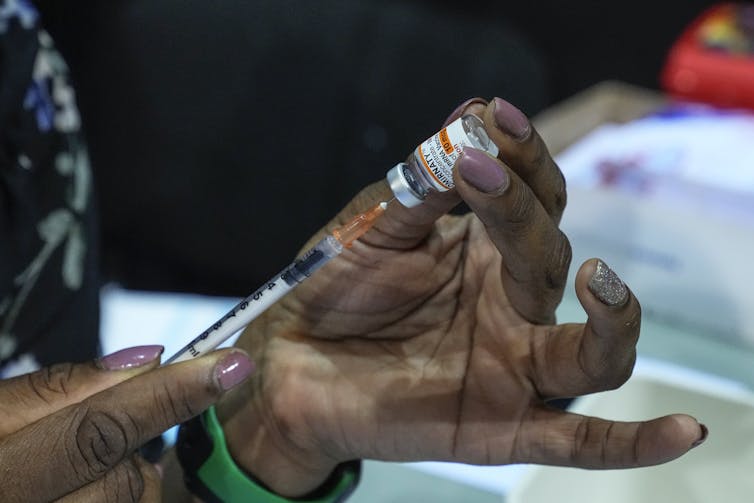
It requires generic manufacturers to identify all related patents, which is impossible given vaccines’ complex “patent thickets” (overlapping patent rights), and something not required under present TRIPS rules. It puts a time limit on the waived obligations, as though pandemics are calendar-savvy.
While it removes barriers to generic companies exporting to developing countries that lack their own manufacturing capacity, it excludes countries that supplied more than 10 per cent of global vaccine exports in 2021, namely, China.
A shadow of its original intent, the new waiver is endorsed only by the EU, with support from the WTO director-general.
Why the new waiver proposal should be opposed
If enacted as currently drafted, the new waiver sets a precedent that will restrict the ability of countries with the capacity to mass produce therapeutics, diagnostics and even personal protective equipment. This would apply to the still-with-us COVID-19 pandemic and for any new zoonotic outbreaks that are almost certainly on the near horizon.
Without a meaningful waiver, new variant-ready vaccines expected later this year are likely to be gobbled up once more by high-paying rich countries, with the poorer ones left with older less-effective versions.
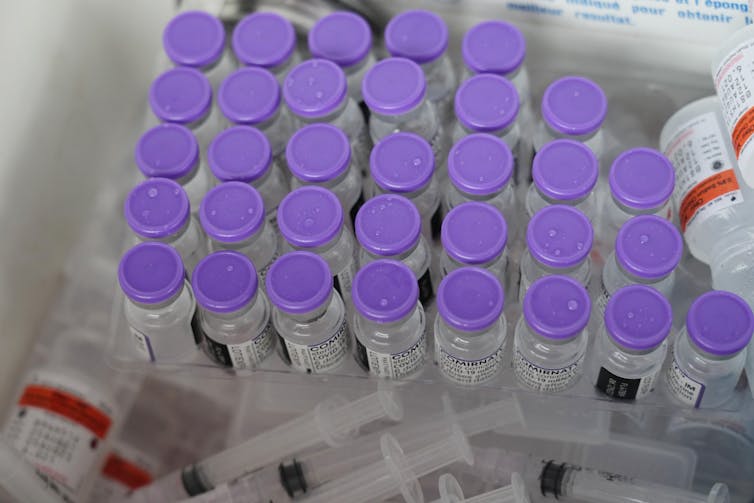
The same scenario applies to therapeutics such as Pfizer’s antiviral drug, Paxlovid. Most of its current supply will go to wealthy countries that can afford the high prices Pfizer charges. Pfizer will allow licences for generic versions to be produced for distribution to 95 developing countries, but not until 2023.
Moderna, the other mRNA vaccine leader, is busy registering patents for its vaccine in South Africa as that country, with WTO support, is close to copying Moderna’s recipe, the know-how for which it plans to share publicly. Moderna’s new patents could jeopardize this effort. The company meanwhile has plans to create its own mRNA plant in Kenya to supply the African continent on its own profitable terms.
On May 25, Pfizer announced that it would eventually provide all “current and future patent-protected medicines on a not-for-profit basis” to 45 lower-income countries, beginning with five countries in Africa.
The company’s decision is welcome, but questions remain. Will Pfizer forego lucrative sales of its current and future drugs to rich countries in order to supply (eventually) the 1.2 billion people living in the world’s poorest nations? Or will these countries have to wait until the paying world’s 6.7 billion people have had their supply needs met?
Current property rights not fit for global health purpose
The bottom line: for-profit companies should not be setting public health policy during global health emergencies. Individual corporate decisions to supply life-saving health innovations at cost in otherwise unprofitable markets is not a sustainable or ethical solution.
Bluntly stated: companies’ intellectual property rights should not be allowed to trump people’s health rights.
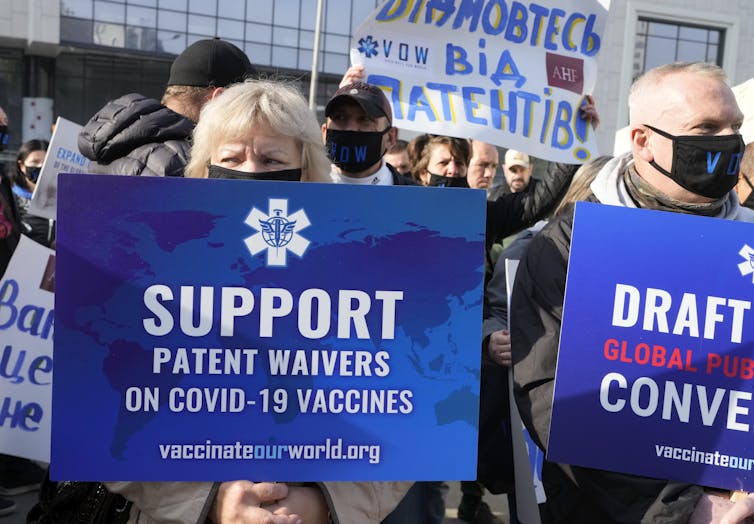
Investment into new health products means taking risks, and it warrants some reward. However, much of the groundwork in pharmaceutical research is publicly funded.
This was certainly the case with COVID-19 vaccines, and one of the reasons why many organizations argued that these discoveries should be considered “people’s vaccines” and treated as public goods. Governments need to place conditions on the financial support they give to health research to ensure that the results are more equitably shared.
In the case of public health emergencies, such as pandemics, this should include requirements that companies forego their monopoly property rights, accept negotiated royalties for their efforts and share their knowledge.
President Joe Biden’s administration recently took a step in this direction. It licensed 11 COVID-19 inventions that arose from in-house research at the National Institutes of Health, including early-stage development of the stabilized spike protein that forms the base of mRNA vaccines.
Described as “a pretty big deal” by an advocate of shared intellectual property, the licenses will be administered by the non-profit Medicines Patent Pool that negotiates low royalty costs for generic manufacturers, so inventors will still get some reward.
But this early-stage knowledge-sharing is insufficient to enable full development of medical innovations, which requires drug companies holding patents on the finished, commercialized vaccines and COVID-19-related technologies to waive these rights and to share their technical know-how.
Canada and the June WTO meeting
As with the rest of the world, Canada’s attention is moving away from COVID-19 to inflation fears and Russia’s war against Ukraine. With surprisingly little media coverage, the government began holding parliamentary committee hearings on vaccine equity this past spring. Still, it remains uncommitted on the waiver, as it has since the original waiver was proposed.
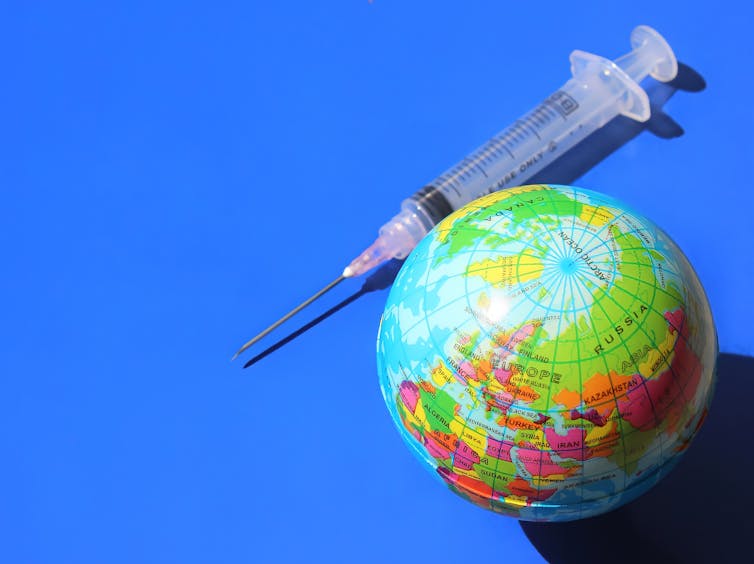
Health and civil society groups, meanwhile, remain committed to urging the government to make the right ethical and health protective decision. They are calling on Canada to use the June WTO meeting to bring the deeply flawed new waiver proposal closer to the original one.
There is still a need for a decent TRIPS waiver to ensure that intellectual property rights do not get in the way of rapid and equitable access to medicines or any other essential health innovations. That must be one of the key lessons we take from our COVID-19 experience.

